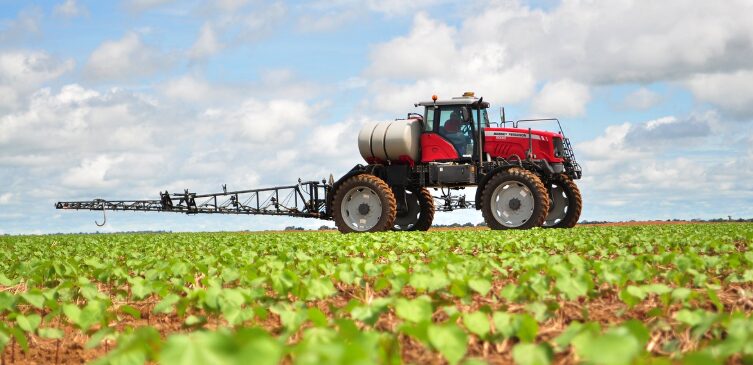Unlocking Sustainable Agriculture with Formagro: A Pathway to Prosperity

In the modern era, where sustainability has become a cornerstone of development, the agricultural sector faces unique challenges and opportunities. The role of innovative programs like Formagro in promoting sustainable agricultural practices is pivotal. This initiative has been a game-changer for farmers and agricultural communities worldwide, enabling them to adopt efficient, eco-friendly, and economically viable farming techniques.
What is Formagro?
Formagro is a specialized program aimed at empowering farmers and agricultural stakeholders by providing access to advanced tools, training, and resources. The program emphasizes sustainability, economic growth, and food security, addressing key issues such as climate change, soil degradation, and market accessibility.
Operating across various regions, Formagro focuses on strengthening local agricultural practices while incorporating global best practices. Its holistic approach includes training sessions, financial assistance, and innovative technology adoption to ensure a comprehensive agricultural transformation.
The Challenges in Modern Agriculture
Before delving deeper into Formagro’s contributions, it is essential to understand the challenges farmers face today:
- Climate Change
Global temperature shifts, erratic weather patterns, and reduced water availability have significantly impacted agricultural productivity. Farmers must now adapt to these changes by adopting resilient farming techniques. - Soil Degradation
Overuse of chemical fertilizers and improper farming methods have led to declining soil fertility, threatening long-term agricultural productivity. - Market Access
Farmers, particularly in rural areas, often struggle to access markets where they can sell their produce at fair prices, reducing their economic viability. - Lack of Resources and Training
Many farmers lack access to modern farming tools, techniques, and knowledge, which limits their ability to maximize productivity sustainably.
Formagro: Bridging the Gap
Formagro addresses these challenges by creating a robust framework for agricultural sustainability. Here are some key aspects of the program:
- Sustainable Farming Practices
Formagro emphasizes eco-friendly farming methods that maintain soil health and minimize environmental impact. These include organic farming, crop rotation, and integrated pest management techniques.
- Capacity Building and Training
Farmers are at the heart of agriculture, and Formagro invests heavily in their education. Through workshops, hands-on training, and community programs, farmers learn about advanced agricultural practices, irrigation techniques, and resource management.
- Market Linkages
Connecting farmers with local and international markets is a priority for Formagro. By fostering partnerships with stakeholders and leveraging technology, the program ensures that farmers receive fair compensation for their produce.
- Access to Technology
Modern agriculture relies heavily on technology, from precision farming to smart irrigation systems. Formagro equips farmers with tools and techniques to enhance productivity while conserving resources.
- Financial Support
Small-scale farmers often lack access to affordable credit. Formagro collaborates with financial institutions to provide low-interest loans and grants, enabling farmers to invest in better equipment and resources.
Real-Life Impact of Formagro
The success of Formagro is best illustrated through real-world examples:
- Reviving Degraded Lands in Latin America
In several Latin American countries, Formagro has helped rehabilitate degraded lands through sustainable farming techniques. Farmers have reported increased yields and improved soil health within just a few years of program implementation. - Empowering Women Farmers
Formagro places a strong emphasis on gender equality in agriculture. Women farmers, who often face marginalization, are given the tools and training they need to succeed. This not only improves household incomes but also promotes gender equity in rural communities. - Climate-Resilient Agriculture in Africa
In regions prone to drought, Formagro has introduced climate-resilient crops and water-saving irrigation methods, helping communities combat the adverse effects of climate change.
The Role of Partnerships in Formagro’s Success
Formagro’s impact is amplified through partnerships with governments, NGOs, and private organizations. These collaborations bring additional resources, expertise, and reach to the program, ensuring its sustainability and scalability.
Government Collaboration
Governments play a vital role by providing regulatory support and integrating Formagro’s practices into national agricultural policies.
Private Sector Engagement
By involving agribusiness companies, Formagro ensures that farmers have access to markets, technology, and innovative solutions.
Community Participation
Local communities are actively involved in program design and implementation, ensuring that solutions are tailored to their specific needs.
The Future of Formagro
As the global population continues to grow, the demand for sustainable agricultural practices becomes more pressing. Formagro is poised to play a critical role in shaping the future of agriculture by:
- Expanding Its Reach
Plans to scale the program to new regions will enable more farmers to benefit from its resources and expertise. - Incorporating Advanced Technologies
The integration of artificial intelligence (AI), drones, and satellite imagery into farming practices will further enhance productivity and efficiency. - Strengthening Climate Adaptation Strategies
Formagro will continue to develop innovative solutions to help farmers adapt to changing climate conditions. - Promoting Global Food Security
By increasing agricultural productivity and reducing food waste, Formagro contributes to global food security goals.
Conclusion
Formagro exemplifies how targeted interventions can transform agriculture, turning challenges into opportunities. By prioritizing sustainability, farmer empowerment, and technological innovation, the program not only improves livelihoods but also ensures a healthier planet for future generations.
As the world grapples with the dual challenges of feeding a growing population and mitigating climate change, initiatives like Formagro offer a blueprint for success. Farmers, governments, and organizations must collaborate to expand such programs, ensuring that the benefits of sustainable agriculture reach every corner of the globe.
Formagro is more than a program—it is a movement towards a sustainable agricultural future. By supporting and participating in such initiatives, we can collectively contribute to a world where agriculture thrives in harmony with the environment.
If you’d like specific changes, a focus on certain regions, or additional details, let me know!





